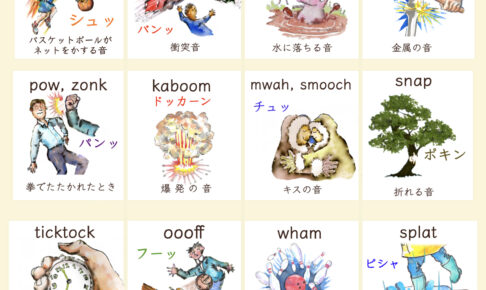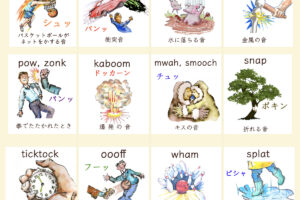今回、「believe」と「believe in」の違いをみてみましょう。「believe」
に前置詞の「in」が付くと、その意味が大分変わってきます。まず、「believe」をみてみましょう。「believe」はその現象は何が真実かどうかを判断する時に使う動詞です。
Do you believe that story?
その話は本当だと思う?
I believe you.
あなたの言っていることを信じます。
I’m afraid I don’t believe a word of it.
全く信じられません。
「believe in」には二つの意味があります。それは:
1.何らかの存在を信じること
2.誰かの力、能力などを信じること
一番目の意味をみてみましょう。この言い方は神様、来世、妖精、幽霊、UFOなどに対して使います。多くの場合、この言い方は「do you believe」から始まる質問文で用いられます。例えば、冬になると、イギリス人の子供は学校でこんな質問を誰かにするかもしれません。
Do you believe in Father Christmas?
サンタクロースの存在を信じる?
大人は、友達に
Do you believe in God?
神様の存在を信じる?
と聞く場合もあると思います。
次に、二番目の意味をみてみましょう。この「believe in」の使い方は「self belief – 自信」に関連します。つまり、「to believe in oneself」は「to have self belief」
とほぼ同じ意味になります。
He is a man who believes in his own abilities.
彼は自分の能力を信じているタイプだ。
自分のことに対しても「believe in」を使うことができます。
アメリカの文化では、「to believe in yourself」はとても重要なことです。ですので、
I believe in myself.
私は自分自身を信じている。
という発言をよく耳にします。また、人に発破をかける時には、
You have to have belief in yourself.
自分の能力を信じて!
「believe in themselves too much」という欠点がある欧米人はたまにいると思います。
He believes in himself too much.
彼は自分を過信している。
「believe in」は人だけではなく、自分が大事にする行動に対しても使います。この使い方はやや難しいと思います。以下の例文の違いをみてください。
I believe in work.
仕事することがよいと信じる。
I believe in my work.
自分の仕事に自信がある。
I believe in an exercise routine.
毎日運動することがよいと信じる。
I believe in my exercise routine.
自分の運動スケジュールに自信がある。
これらの例文を見ると、自分のことについて話す場合は、「believe in」は「自信がある」という意味になります。 物事に対して「believe in」を使う場合は、「そのことがよいと思っている」という意味になります。
というわけで、この記事の要点は下記ようになります。
There’s a big difference between believing someone and believing in him.
ある人の言葉を信じるのとその人自身を信頼するでは大きな違いがある。













I subscribe to this blog because it is fun and so helpful. I wish you have an “epic” 2012:)
Hi Kento,
I hope you have a great 2012 too. Thanks very much.
I will believe in myself.
thank you so much.
Good for you! No problem.
Do you know the song” don’t stop belivein’ “?
This belivein’ is mean …believing or believe in?
Workin’ is working
Livin’ is living rigrth?
Don’t stop belivein’
って曲がありますが、
この「’」って略語のためですか?
Believe inか
Bleivingの略か
歌詞をみてると
Believe inだとおもったにですが。。。
どうでしょうか?
stopの後は動名詞がくるので「believing」じゃないでしょうか。
I feel ‘ in ‘ has connection to ‘ en-‘ so much.
For example,’ Enrolling in ‘,’ Enter in ‘,’ Entrance in ‘ and so on.
Therefore,It is impossible to understanding ‘ in ‘ deeply as feelings without understanding word origin of ‘ en-‘.
The word origin of ‘en-‘ is the meaning below.
1. “to cause (a person or thing) to be in” the place, condition, or state.
2. “to confine in or place on”
3. “to cause to be in”
4. “to restrict” in
Every previous meanings are
connected to ‘IN’.
I added value its examples for 1.to 4.below.
1. ‘ Thanks for Enrolling In the organization. ‘
2.’ My deep affection is Enshrined In my heart ever. ‘
3.’ I always Encourage him In the way of life. ‘
4.’ This confidential letter is Enclosed In the envelope.’
Moreover,’ en-‘is also attached to verbs in order to make them
transitive,or give them a transitive marker.
And,additionally,I feel that you have so emotional and sensitive feelings about ‘ in ‘ on your
explanation.
I think the key marker is not ‘ in ‘ but the feelings of ‘ en- ‘ that is included in ‘ in ‘.
I mean that you could have impression someting that is not caused yet,when you just heard a word without ‘ en-‘ or ‘in’.
On the other hand,Japanese,like me,does not like to talk about details of privacy to Tird-party people.
So,if you recieved many questions like ‘ How can I say about this to someone? ‘,
you can see that the meaning ‘ someone ‘ has two senses which are ‘ someone special ‘ or ‘ someone Tird-party ‘.
And,The choice which you can see is depends on just your skills.
日本語をちゃんと勉強してください
[…] 「believe」と「believe in」の意味と違い – 英語 with Luke今回、「believe」と… […]
[…] 「believe」と「believe in」の意味と違い – 英語 with Luke今回、「believe」と… […]